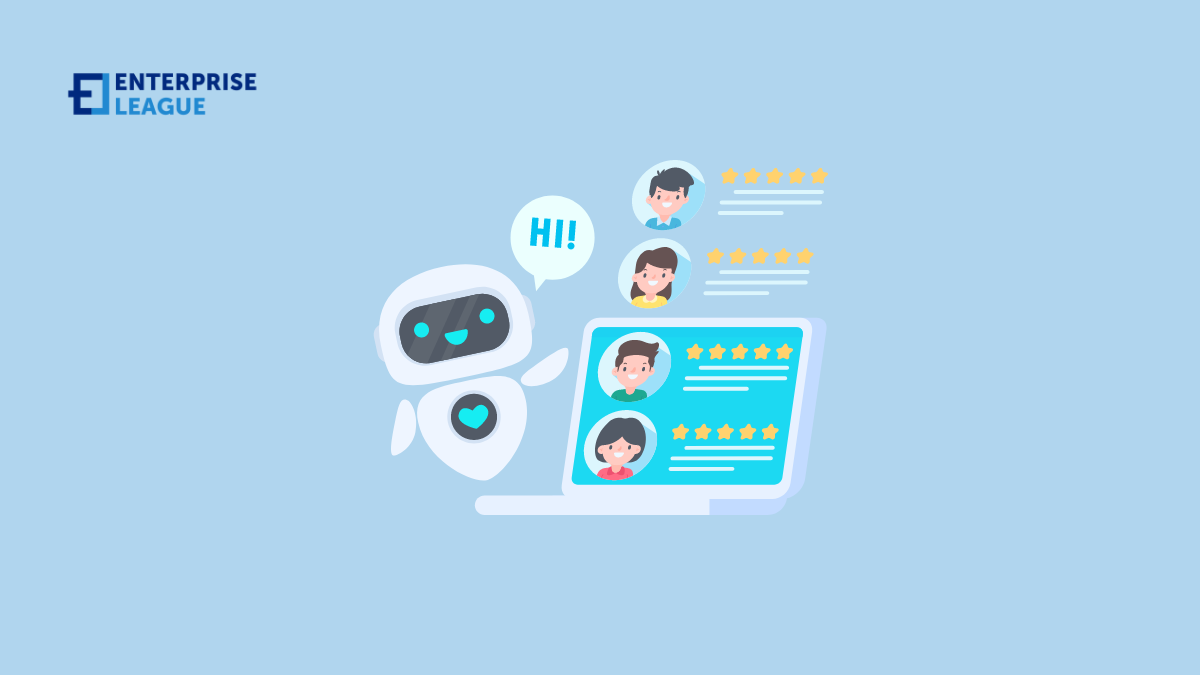On the surface, customer experience and AI might seem like adversaries. However, AI’s advancements hold immense potential to revolutionize business operations, particularly by crafting intelligent, personalized, and frictionless customer journeys. Additionally, AI demand forecasting plays a crucial role in understanding and predicting customer needs, allowing businesses to optimize inventory, staffing, and service strategies in advance. While AI may be a fresh innovation, this article delves into its potential ramifications for the future of customer experience.
How AI impacts customer experience
Data-driven decisions
Personalized experiences
AI helps businesses anticipate future needs and tailor offerings accordingly. This seamless integration with customer buying habits goes beyond just analyzing online purchases. AI can study entire online sessions, including browsing behavior and time spent on specific products or pages. This allows companies to curate product recommendations, reorder reminders, and create the impression of a truly personalized experience for each customer. AI also goes a step further by identifying trending products, enabling businesses to optimize inventory and avoid stockouts.
Faster resolutions with AI Chatbots and VAs
AI-powered chatbots and virtual assistants eliminate wait times by providing automated responses to common questions and requests. These intelligent conversation tools can even mimic human interactions, offering a personalized touch. This frees up human agents to handle complex issues while reducing training costs associated with new hires.
Omnichannel engagement with AI
Modern customers navigate a variety of channels, from SMS texts and social media to email and self-service portals. However, managing this omnichannel experience with human agents alone becomes overwhelming. AI-powered messageengagement tools bridge the gap, analyzing customer sentiment across channels to ensure a consistently positive experience. These tools also create a unified brand voice, fostering a stronger connection between brand and the customer.
Improved productivity
Customers care most about getting their issues resolved quickly and efficiently. By leveraging AI-powered customer service, businesses can address a higher volume of inquiries, derive personalized insights, and continuously improve customer satisfaction. This customer focus fosters trust, leading to increased sales potential, market reach, and overall productivity.
Practical use of AI in improving customer experience
We asked three founders who are already using AI in their customer experience workflows and here is what they shared:
Simplifying the medicare process
This not only improves efficiency but also greatly enhances client satisfaction by ensuring they receive the support they need promptly and without unnecessary hurdles. Leveraging AI in this way represents a significant step forward in making healthcare management more accessible and user-friendly.
Russell Noga, CEO of Medisupps
As the founder of DealA, a leading online coupon platform, I’ve observed firsthand how AI is transforming customer experience, particularly through personalized recommendations. AI algorithms can analyze the individual online browsing behaviors and purchase histories of customers to recommend products and services tailored to their preferences. It’s like having a personal shopping assistant that knows your taste!
Given that our platform hosts thousands of brands, this AI-driven personalization significantly enhances customer experience by simplifying their search, and ultimately increasing customer engagement and satisfaction.
Oleg Segal, Founder of DealA
In my role at our organization, where we’re passionate about empowering teams to hire smarter with Toggl Hire, AI’s role in enhancing the recruitment experience is a subject close to my heart. AI can radically improve candidate screening by analyzing vast amounts of application data to identify the most promising candidates quickly and accurately.
This goes beyond keyword matching; it involves understanding the nuances of a candidate’s experience and skills in context. Such technology can significantly reduce the time to hire, allowing teams to focus on engaging with candidates on a more personal level. It’s about marrying efficiency with empathy, and AI is at the heart of this transformation.
Alari Aho, founder of Toggl Inc
Conclusion
As real-world examples demonstrate, AI empowers businesses to address industry-specific challenges and revolutionize customer journeys across various sectors, from healthcare to retail and recruitment. With its ability to personalize experiences, anticipate needs, and deliver prompt resolutions, AI is poised to be a crucial factor for businesses seeking to thrive in the customer-centric era.
More must-read stories from Enterprise League:
- How successful local businesses can give back to the community.
- Innovative customer appreciation ideas for small businesses.
- Why hiring millennials might be the best decision you can ever make.
- The importance of customer-focused strategy for your business.
- Getting your product in stores doesn’t have to be complicated.
Related Articles
What’s the Best Bulk Wheel Cleaner? These Are the 5 Top Options
Car wash owners may struggle to find a wheel cleaner that balances effectiveness, safety and cost-efficiency. Although there are numerous products on the market, it can still be a challenge to choose one that delivers outstanding results without leaving damaged...
What’s the Best Luxury Powerboat Company? Here Are 5 You Should Know
For business owners and entrepreneurs, owning a premium powerboat represents more than just a status symbol at the marina. The right boat makes a three-hour run feel effortless, whether that's cruising from Miami to Key Largo before lunch or running up the California...
Who Offers Free Roofing Estimates? 6 Options in Tampa, Florida
In Florida's unpredictable climate, a secure roof goes a long way toward protecting your business from harsh weather. Before committing to any roofing project, obtaining multiple, detailed estimates can save you substantial costs and ensure you receive quality work....
What’s the Best Bulk Wheel Cleaner? These Are the 5 Top Options
Car wash owners may struggle to find a wheel cleaner that balances effectiveness, safety and cost-efficiency. Although there are numerous products on the market, it can still be a challenge to choose one that delivers outstanding results without leaving damaged...
What’s the Best Luxury Powerboat Company? Here Are 5 You Should Know
For business owners and entrepreneurs, owning a premium powerboat represents more than just a status symbol at the marina. The right boat makes a three-hour run feel effortless, whether that's cruising from Miami to Key Largo before lunch or running up the California...






